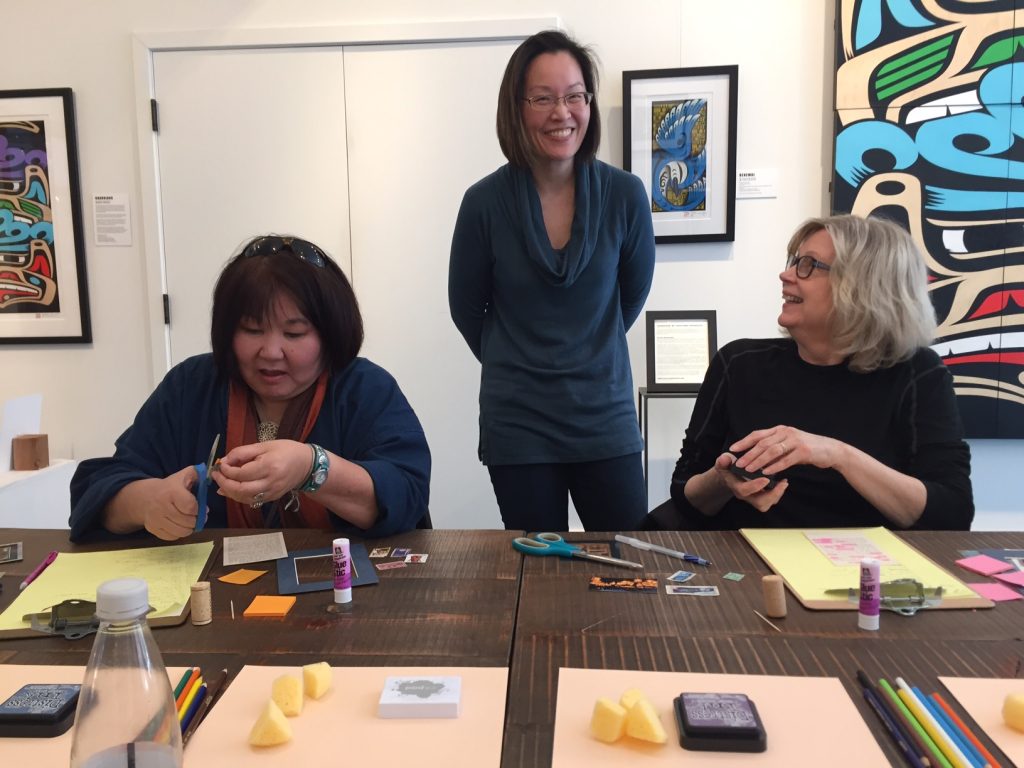 One month ago, my husband Marcus and I taught our first Poetry Makerspace Workshop on a bright May day at the beautiful Eighth Generation Busted Knuckle Gallery in Pike Place Market. WE LOVED IT!
One month ago, my husband Marcus and I taught our first Poetry Makerspace Workshop on a bright May day at the beautiful Eighth Generation Busted Knuckle Gallery in Pike Place Market. WE LOVED IT!
Marcus and I truly believe that everyone can write, and everyone can make art. We love sharing creative experiences with people.
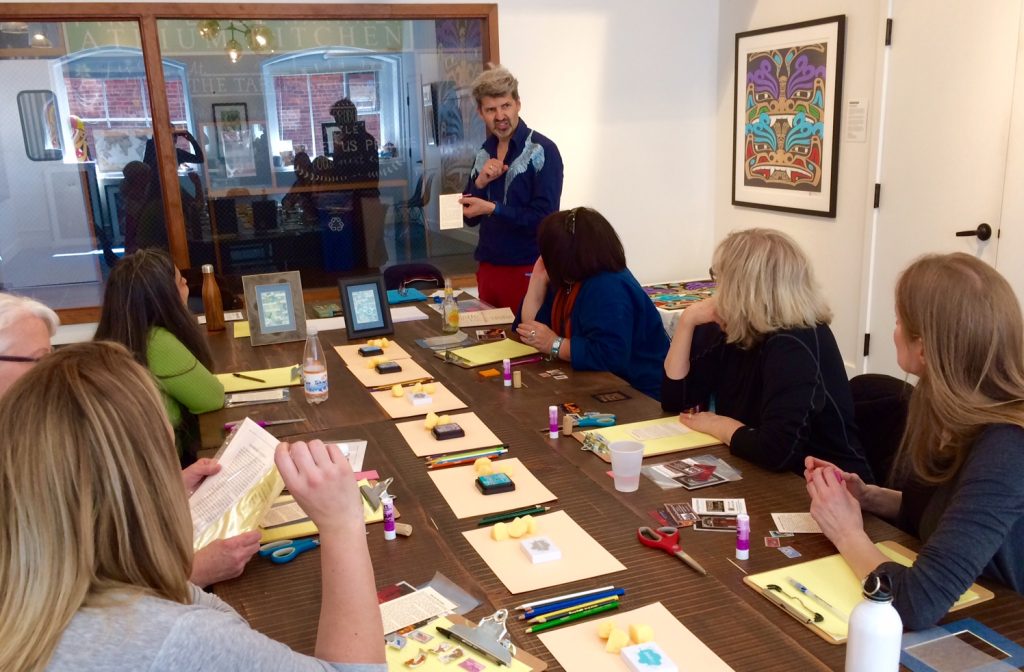 I’m used to experiencing creativity myself, and Marcus has taught many photography classes and workshops, but it was a new thing for me to teach others, and then witness them actually create a piece of art right in front of me. It was thrilling.
I’m used to experiencing creativity myself, and Marcus has taught many photography classes and workshops, but it was a new thing for me to teach others, and then witness them actually create a piece of art right in front of me. It was thrilling.
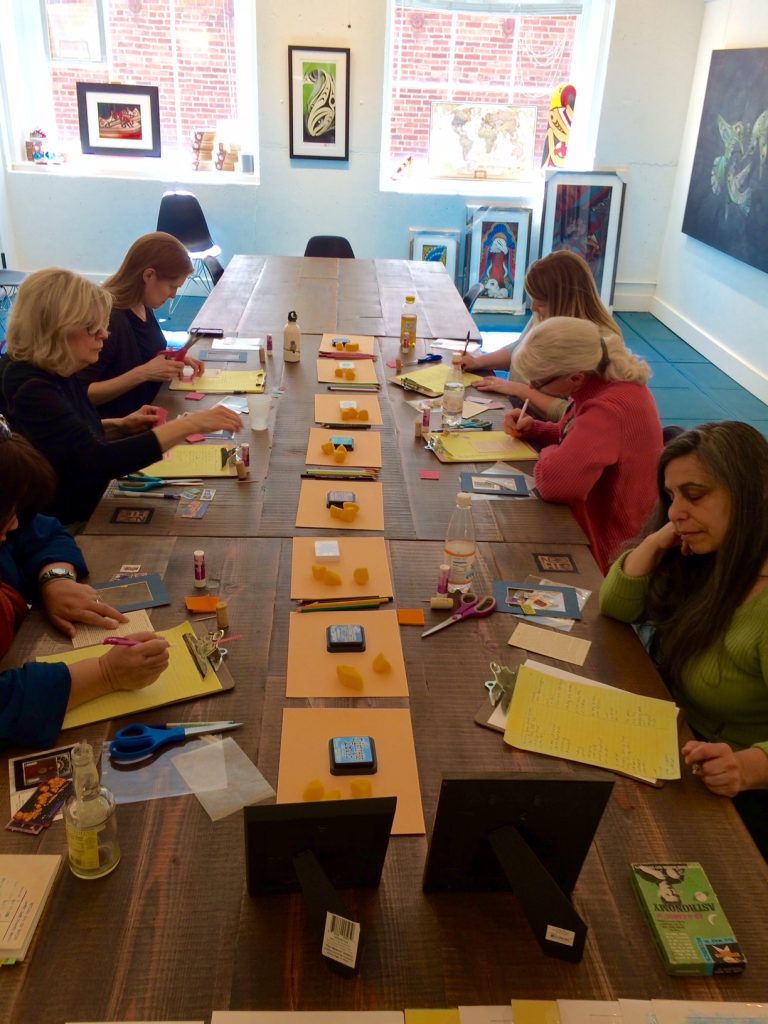 What also thrilled me was seeing people create poetry in a room with other people. Writing is such a solitary art form. I like writing by myself and enjoy being alone to fully immerse myself in my imaginary world, but I’ve also written many times in this blog that writing by myself, day in and day out, can also be depressing and isolating. It’s a tricky balance.
What also thrilled me was seeing people create poetry in a room with other people. Writing is such a solitary art form. I like writing by myself and enjoy being alone to fully immerse myself in my imaginary world, but I’ve also written many times in this blog that writing by myself, day in and day out, can also be depressing and isolating. It’s a tricky balance.
But, after hosting my Writers Wellness Retreat in March and this workshop in May, I think I may have discovered a way to balance my introverted and extroverted sides. Helping people create, grow, and express themselves even just once a quarter may be what I need to fire me up and keep me going on my solitary writing endeavors.
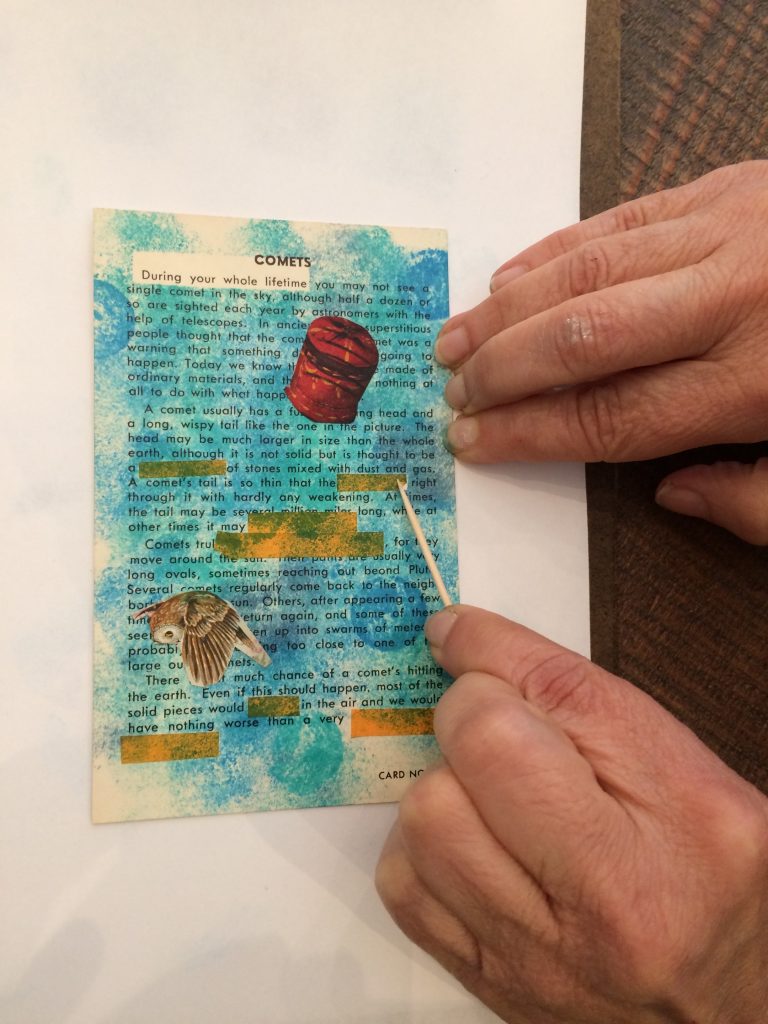 It was great to not be in the creator’s seat, and instead, stand back and watch people take a plain-looking card of text (vintage astronomy Ed-U-Cards that I found on Etsy) and turn it into a poetic piece of art using post-it notes, ink pads, sponges, used stamps, and glue sticks.
It was great to not be in the creator’s seat, and instead, stand back and watch people take a plain-looking card of text (vintage astronomy Ed-U-Cards that I found on Etsy) and turn it into a poetic piece of art using post-it notes, ink pads, sponges, used stamps, and glue sticks.
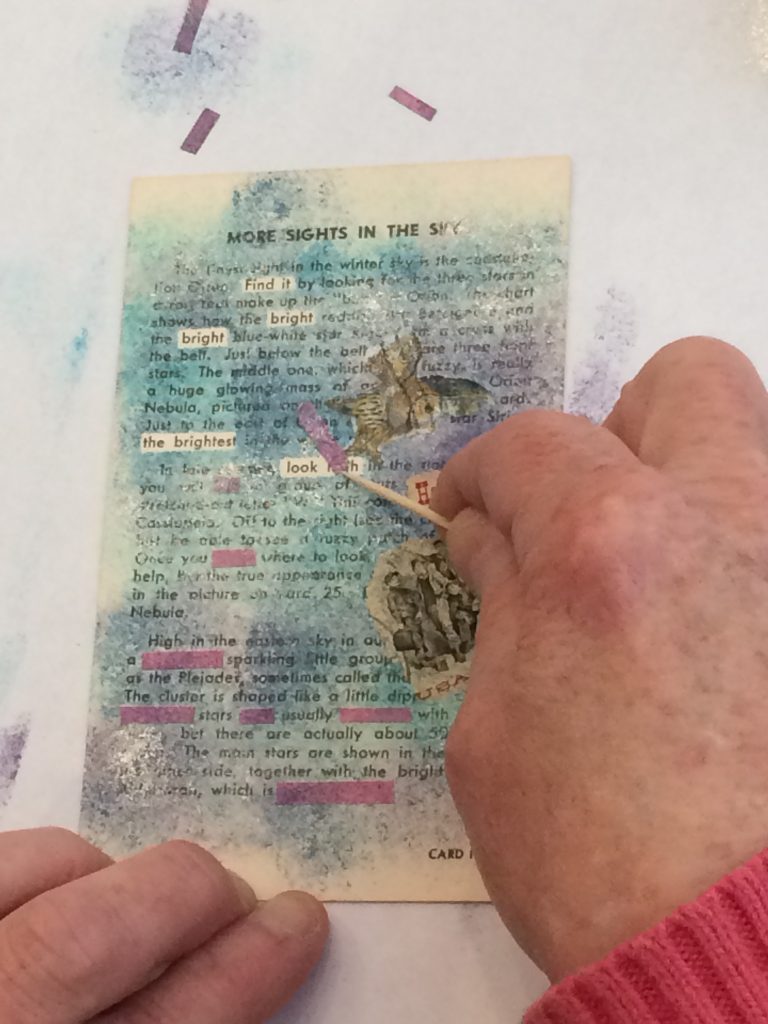 It touched me that some participants confessed that they had never written poetry, or had not written a poem in 20 years, or were afraid of poetry. But in just two hours, every person created a poetic piece of art. I was so proud of each and every one, and each and every creator.
It touched me that some participants confessed that they had never written poetry, or had not written a poem in 20 years, or were afraid of poetry. But in just two hours, every person created a poetic piece of art. I was so proud of each and every one, and each and every creator.
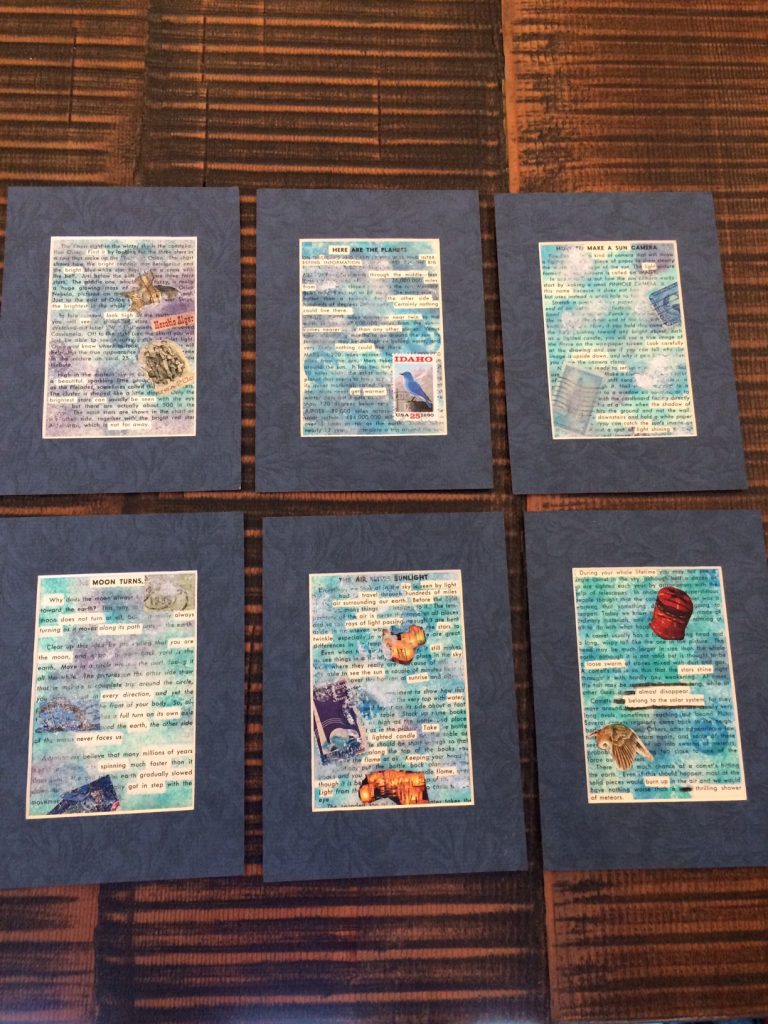 This workshop combined all the things that I LOVE: words, arts and crafts, people, creative expression, personal growth, and even my husband Marcus. But this workshop would never have come into being without the brilliance of author, poet, and artist, Robyn Hood Black. I learned this technique of creating a found poem and an art piece through Robyn’s Found Poetry Makerspace Workshop at Village Books in Bellingham last October. Thank you, Robyn, for creating such an awesome event, and for inspiring me to host my own workshop!
This workshop combined all the things that I LOVE: words, arts and crafts, people, creative expression, personal growth, and even my husband Marcus. But this workshop would never have come into being without the brilliance of author, poet, and artist, Robyn Hood Black. I learned this technique of creating a found poem and an art piece through Robyn’s Found Poetry Makerspace Workshop at Village Books in Bellingham last October. Thank you, Robyn, for creating such an awesome event, and for inspiring me to host my own workshop!
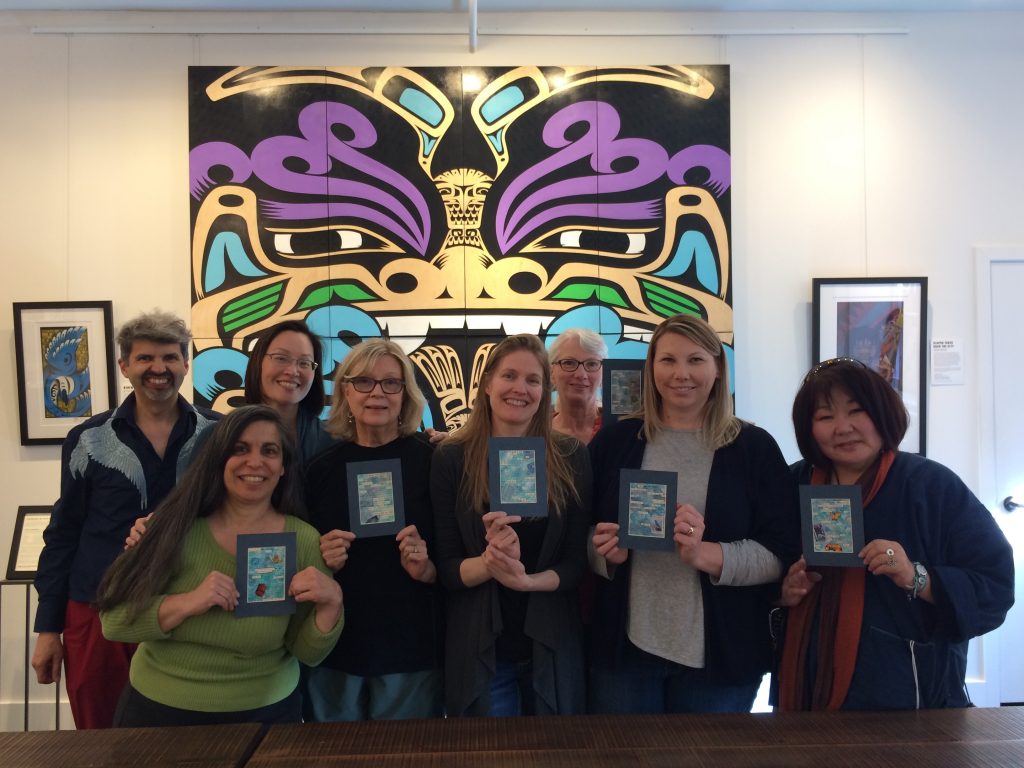 As I wrap up, I want to thank Marcus for helping me coordinate and teach the workshop; our six poetic friends, Laila, Mary, Stephanie, Nancy, Heather, and Linda, for attending; and the universe, for bringing us together.
As I wrap up, I want to thank Marcus for helping me coordinate and teach the workshop; our six poetic friends, Laila, Mary, Stephanie, Nancy, Heather, and Linda, for attending; and the universe, for bringing us together.
If you’re interested in attending a workshop like this, subscribe to my blog and you’ll be the first to know about future workshops.
Peg Cheng is the author of The Contenders, a middle-grade novel centered on the question, can enemies become friends? She is currently writing another novel that is a re-imagining of the Snow White fairy tale set in 1980s Seattle. Peg is also a writing coach giving help, encouragement, and feedback to writers from all walks of life.
